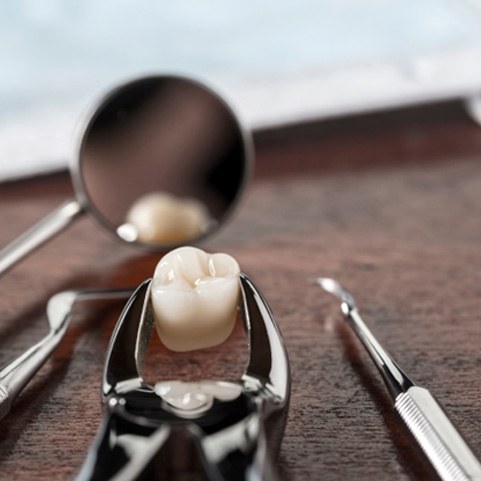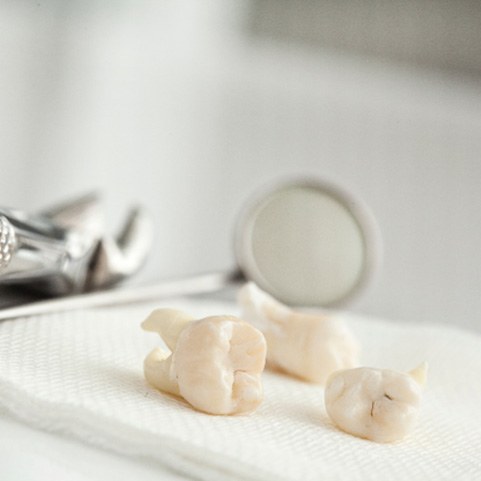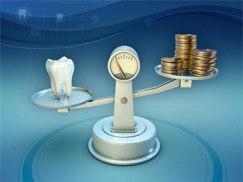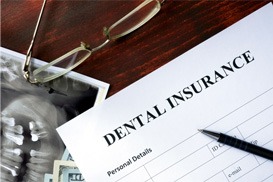Tooth Extractions – Lewisville, TX

Safe, Gentle Tooth Removal
There are several measures that we can take to try and save a decayed or damaged tooth, such as performing a root canal treatment or placing a dental crown. But if Dr. Jayswal finds that there’s no viable way to save the tooth, she may end up recommending an extraction. Rest assured that this will always be a last resort, and we have multiple ways to fill in the gap after the procedure. Are you worried that you have an unsalvageable tooth? Call us immediately so that we can figure out whether a tooth extraction truly is the right choice for you.
Why Choose Nexus Dental of Lewisville for Tooth Extractions?
- Multiple Tooth-Replacement Options Available
- Focus on Gentle, Personalized Care
- Same-Day Appointments for Emergencies
Reasons Why Tooth Extractions Are Necessary

When the possibility of a tooth extraction comes up, the first question on your mind is likely to be, “Do I really need to have this procedure performed?” After all, keeping all of your natural teeth is generally the best choice for your oral health, but there are circumstances where tooth removal is genuinely the only option.
We may determine that you need to have a tooth removed if:
- You have a tooth infection that has advanced to the point where it may start to spread to other parts of your mouth.
- You have a severely weakened or damaged tooth that is incapable of supporting a crown or another type of restoration.
- You have teeth that are so crowded together that you are unable to have important orthodontic work performed.
- You are planning to get dentures but still have a few remaining teeth.
The Process of Removing a Tooth

Step one is to evaluate the tooth in question. In addition to performing a visual examination, we are likely to take X-rays. Once we have a firm idea of what kind of state the tooth is in, we can determine whether extracting it is truly necessary – and, if so, what type of extraction should be performed.
Fully erupted teeth can typically be removed with a simple extraction. Special instruments are used to loosen the tooth to the point where it can simply be taken out of the mouth with forceps.
Impacted or badly damaged teeth might have to be removed surgically. This means that a small amount of gum or bone tissue will need to be removed so that the tooth can be taken out.
Tooth Extraction Aftercare

On average, it can take about 7 to 10 days to recover from a tooth extraction. Our team will give you some instructions to follow to ensure that there aren’t any problems while your mouth is healing. You should plan on maintaining a strict diet of only soft or liquid foods for a few days, and you shouldn’t chew with the side of your mouth where the extracted tooth was located. Additionally, you can take ibuprofen or another over-the-counter pain reliever to manage your discomfort.
Understanding the Cost of Tooth Extractions

Extracting a tooth is never your dentist’s first choice, but sometimes it is necessary to preserve the health of the rest of your smile. One concern you may have about your upcoming tooth extraction is the cost. We won’t be able to determine exactly how much your procedure will be until we see you in person. In the meantime, here are some things for you to take into consideration.
Factors That Can Affect Tooth Extraction Cost

Several different factors are used to determine the cost of your tooth extraction. Here are some of the most prominent ones:
- Number of Teeth: If you need to have multiple teeth extracted, the cost will be higher than a single tooth extraction.
- Complexity: Depending on where your tooth is located in your mouth and whether it is impacted, the cost will vary. Some extractions are much easier and quicker than others.
- Tooth-Replacement: If you need to replace your missing tooth with a dental implant or another tooth replacement option, you should consider how much it will cost.
Does Dental Insurance Cover Tooth Extractions?

Most dental insurance plans will partially cover the cost of a tooth extraction at 50% after your deductible has been met. However, there could be limits in place or a waiting period before the coverage kicks in. Every plan is unique, so it is best to confirm this with your insurance company first so you don’t run into any surprises. Our team would also be happy to help you with this process.
Other Options for Making Tooth Extractions Affordable

Currently, we have a special offer for a $39 exam and X-ray if you are struggling with a dental emergency, so your initial emergency visit isn’t something to stress about. However, if you don’t have dental insurance, you may be wondering how you can make your tooth extraction more affordable. One option is to apply for a plan through CareCredit. This is a third-party financing company that can split the cost of your treatment into manageable monthly installments with little to no interest. To learn where you can apply, don’t hesitate to reach out to us.
To find out exactly how much you can expect your tooth extraction to cost, schedule a consultation with us. We are eager to restore your smile to health!
Tooth Extractions FAQs
What’s the Recovery for Tooth Extractions Like?
When you are recovering from having your tooth extracted, there is a long list of rules that you should follow. In addition to resting, you need to care for the blood clot that forms in the socket where your tooth used to be. Neglecting this can cause painful complications, including dry socket. This is why you are instructed not to spit or drink through a straw during your recovery. You also need to keep your mouth clean to minimize your risk of infection. This includes steps like rinsing with saltwater and gently brushing and flossing once your dentist says it is okay. You should stick to a soft diet and take any over-the-counter and prescribed medications as directed. Most patients begin feeling better after a few days.
Can I Smoke After Getting a Tooth Extracted?
Tobacco products, like cigars and cigarettes, can delay healing, so you shouldn’t smoke immediately following your procedure. It is recommended that you abstain from smoking for at least 5 days afterward. However, if you can, you should avoid tobacco products for two weeks. If you have had difficulty quitting in the past, don’t hesitate to let us know. This way, we can help you prepare.
How Should I Prepare for My Tooth Extraction?
Preparing for your tooth extraction is just as important as following your aftercare instructions. Before your procedure, you should ask any questions that you have, like what to bring and what you can eat the morning of. If your dentist gives you any special instructions, like not eating beforehand or picking up a prescription, do this beforehand.
Can I Leave the Space Empty After a Tooth Extraction?
If the tooth that you are having pulled is in the back of the mouth, you may be wondering if it is worth the effort to replace it. After all – no one will be able to see it. The truth is that your teeth do so much more than just create a beautiful smile. They are essential to chewing properly and enunciating clearly. Even one missing back too can lead to poor nutrition, indigestion, and difficulty enunciating words. In most cases, it is recommended that once you are done healing, you schedule an appointment to discuss tooth replacement options.
